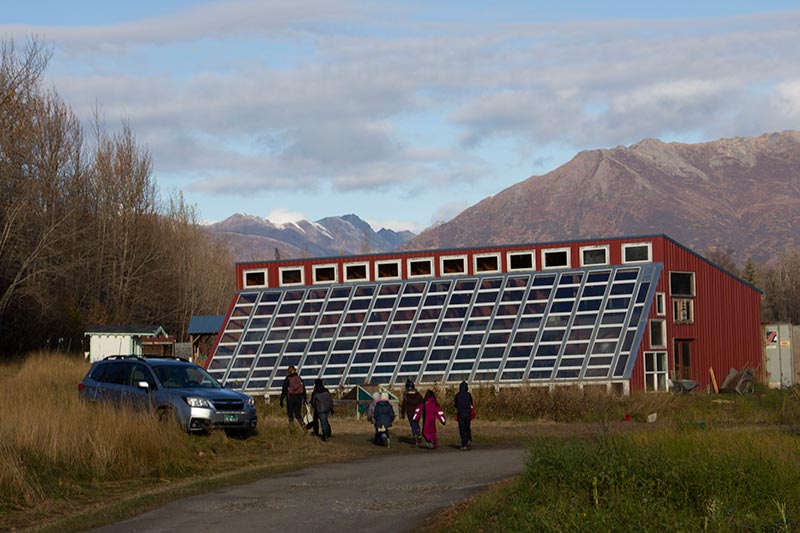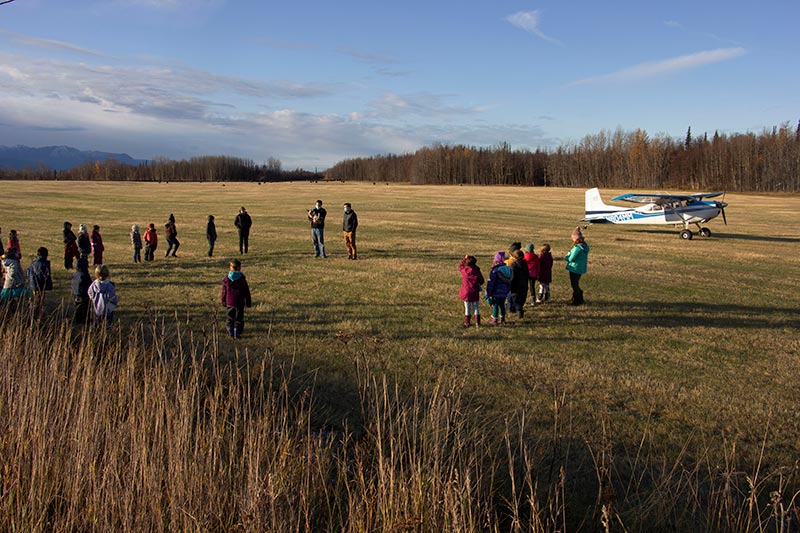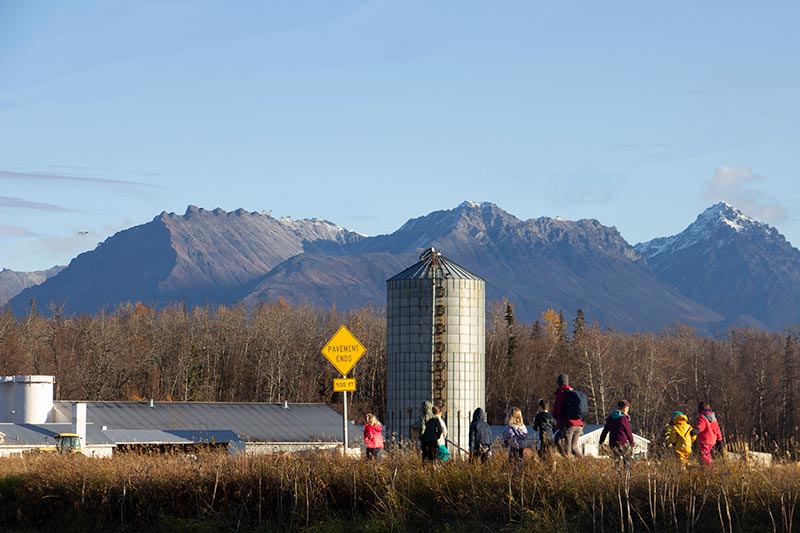Tucked down a long driveway off Farm Loop Road lives a close-knit community of APU students. At the Kellogg Campus in Palmer, neighbors are classmates, roommates are co-workers, and living, learning and working are intertwined.
The Kellogg Campus is an 800-acre farm that hosts APU’s Master of Science in Outdoor and Environmental Education program (MSOEE). Graduate students often spend their first term on the farm, teaching kids in the Kellogg FIELD School as part of their degree-required practicum. Typically, they live on campus in the former farmhouse buildings too. That provides convenience, sparks creativity, and eases the transition to Alaska, especially for students moving North to start graduate school. Plus, with mountains

out every window and fresh vegetables sprouting in the yard, it’s just a great place to live.
“When I finish work, I can just walk home,” said Jimel Lopez Montoya, who has lived at the Kellogg Campus since last fall. There’s no need to drive in the morning, she said. She can just bike to meet her FIELD School students down the road.
FIELD School is a daily program designed for home-school students that draws families from Anchorage to Talkeetna. Kids come to the farm several days a week for three- to five-hour sessions led by MSOEE graduate students. Each group has an indoor space if needed, but programs are held outdoors as much as possible. Graduate students are assigned a theme and age group for the term, and given creative freedom to plan their lessons. Want to dress like a flower to talk about soil? Go for it. Need to call in some pilots to teach about flight? Have them land on the hayfield.
“That’s something that I also love,” said Montoya. “I can be as creative as I want and parents are super-supportive.”
The students’ cars at Kellogg are easy to identify, with outdoorsy bumper stickers and out-of-state license plates. For students driving North with no furniture and no apartment, the Kellogg Campus provides a simple transition to life in Alaska.

“I’m not sure I would have been able to join the program as easily if there wasn’t housing provided,” said Shannon Conway, who drove from Rhode Island to start the MSOEE program in September.
Living on campus makes the work accessible and convenient too, she said. “When I’m setting up for my class the next day, all my resources that I need are right here.” Students have 800 acres to work with as a classroom. And if they ever need a break, they can hike the campus trails or help the farm staff harvest.
MSOEE students lead courses up to three mornings a week. In exchange for their work on the farm, APU pays for required practicum credits. Once the fall practicum is complete, they can continue working as paid staff in the spring.
Meanwhile, they’re still taking graduate courses through APU, covering topics like curriculum design and education research. Concepts they learn in class can be quickly applied to their work at the Kellogg FIELD School. And if they need help with homework, their classmates are often just down the hall or in the cabin next door.

2020 has only increased attention for the FIELD School as more parents shift to homeschooling and look for outdoor education options. The MSOEE students have met that demand with positive energy.
“They are dynamic, they are friendly, they are creative, they are enthusiastic,” Shannon O’Laughlin, FIELD School coordinator, said of this year’s cohort. “The parents are over the moon right now about the experiences that are being provided.”
She’s happy the Kellogg campus can fill a valuable education niche, especially today. FIELD School, O’Laughlin said, “is everything we all need during the pandemic. It’s what these children need, it’s what these parents need. We get to come together and learn and enjoy this absolutely magnificent land and we’re doing it in healthy and safe ways.”
“We are so fortunate to be here right now,” she said.
